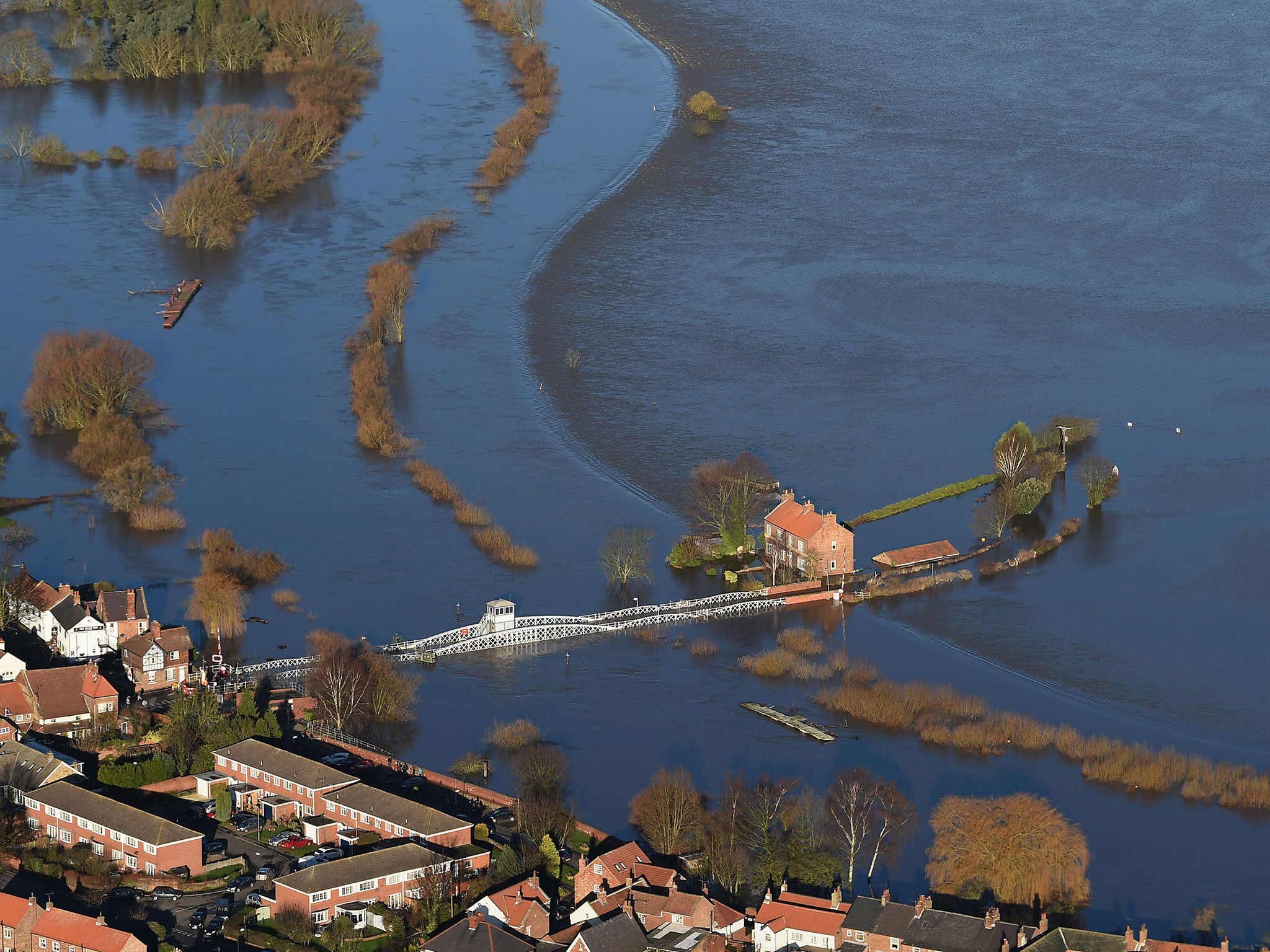UK flooding: False economies may well have exacerbated the impact of the not altogether 'unprecedented' inundations
If nothing else, these floods remind us that there is so much more to be done to protect the planet’s fragile stability

Your support helps us to tell the story
From reproductive rights to climate change to Big Tech, The Independent is on the ground when the story is developing. Whether it's investigating the financials of Elon Musk's pro-Trump PAC or producing our latest documentary, 'The A Word', which shines a light on the American women fighting for reproductive rights, we know how important it is to parse out the facts from the messaging.
At such a critical moment in US history, we need reporters on the ground. Your donation allows us to keep sending journalists to speak to both sides of the story.
The Independent is trusted by Americans across the entire political spectrum. And unlike many other quality news outlets, we choose not to lock Americans out of our reporting and analysis with paywalls. We believe quality journalism should be available to everyone, paid for by those who can afford it.
Your support makes all the difference.It was the Prime Minister himself who declared that the floods across Scotland, Wales and the North of England are “unprecedented”. He was right about that, but his words are pregnant with meaning and, very possibly, some subtle spin. For the implication here is that the freakish weather is so outlandishly unreal, so Old Testament, that no amount of government preparation, no flood defences, no civil contingency planning could possibly have mitigated its effects. As the householders and businesses survey the damage to property and livelihoods they would be right to question that.
Of course, this force of nature has been a shock, and a more destructive one than any of the other episodes over the decades; but was it so beyond the scale of what has gone before that successive governments can be absolved of all blame? Especially, when – as under the current Chancellor – the Treasury has been paring back on what could be done on flood defence in the name of deficit reduction, even though the wider loss to the economy and the Exchequer will be far greater? Sending in the infantry – for all that troops have displayed a magnificent spirit and saved lives – is hardly the answer. Would the politicians at Westminster feel more of a sense of urgency if it were the Thames Barrier that had failed under the weight of an unprecedented flood?
At the very least there should be a full select committee inquiry into the possibility that false economies have made this winter crisis even worse than it needed to be. To the extent that these floods are unprecedented, as with other extreme weather events globally, then that raises many more questions about climate change and the record of a Government that once aspired to be unprecedentedly green.
Ministers such as Amber Rudd deserve credit for helping to achieve an unexpectedly bold accord at the Paris talks a few weeks ago, though bigger players in the world economy were the ones that made the crucial difference to relative success. And yet she and the few other green-tinged Tories are up against a leadership determined to promote fracking, guarantee decades-long taxpayer subsidies to the Chinese and French to build and run nuclear plants, and yet abandon our own promising green energy industry because it cannot survive market forces. The motive appears to be party political, the delivery of cheap fossil-fuel energy and petrol bills to admittedly hard-pressed consumers and businesses – but unnecessarily so when a cross-party pro-green consensus on energy policy could be readily reached.
If the environment had retained the political salience it enjoyed a decade ago, before the financial crisis and recession refocused attention on more pressing financial problems, the Conservatives would never have rehabilitated themselves with the voters. It is a long time indeed since David Cameron went to Norway to cuddle those huskies.
If nothing else, these floods remind us that there is so much more to be done here and abroad to protect the planet’s fragile stability, and to plan for the climate change that may already be irreversible. Britain is a small player, providing an almost trivial percentage of the pollution that global industry is pumping into the skies and seas, and has little financial muscle. Yet, as in the military sphere, that is not to say that a minor power cannot make a major difference. Our own international aid budget, and through the EU a broader international effort, should tilt more towards dealing with issues such as biodiversity, soil erosion and desertification and ensuring security of water supplies – the latter being probably as potent a source of wars as any in decades to come.
Join our commenting forum
Join thought-provoking conversations, follow other Independent readers and see their replies
Comments